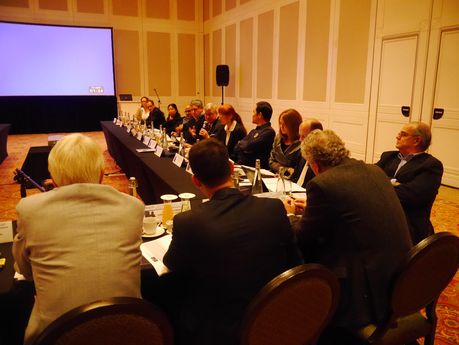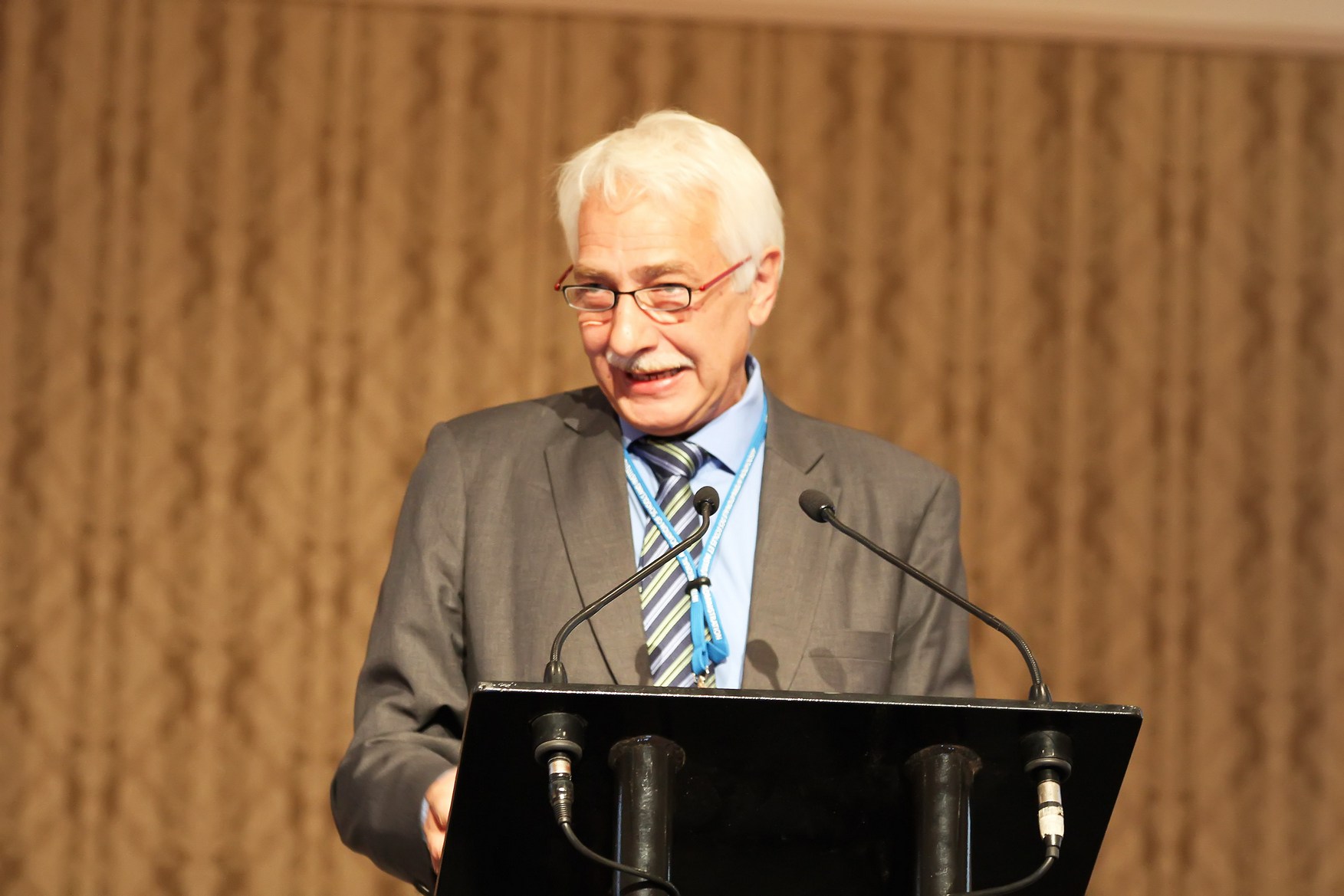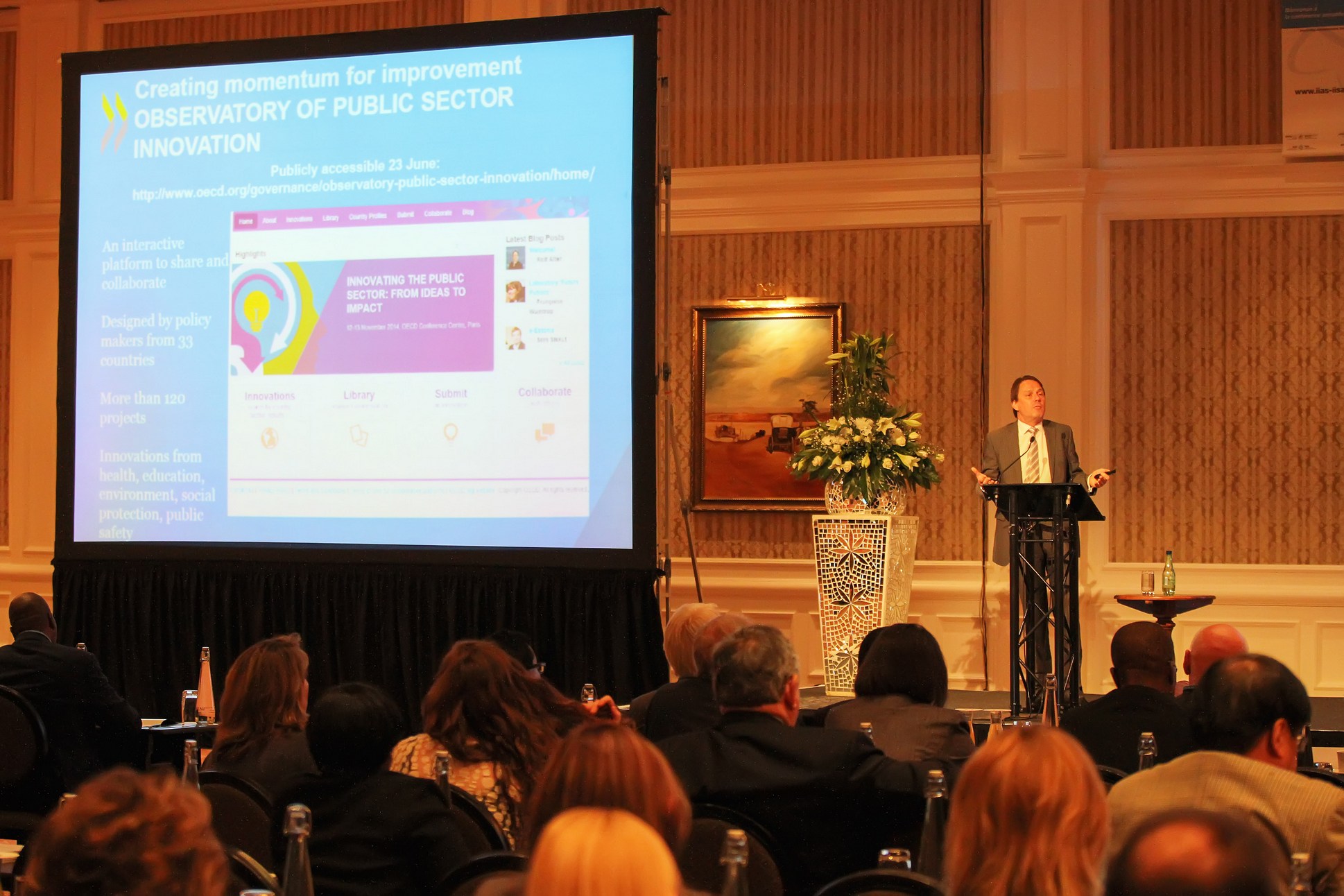NISPAcee collaborative efforts with IASIA
NISPAcee’s Executive Director, who serves as a Vice President of IASIA for Regional and International Cooperation (International Association of Schools and Institutes of Administration, Brussels, Belgium), represented NISPAcee at the IASIA Annual Conference, which was held on June 30 – July 4, 2014 in Port Elizabeth, South Africa. She participated in the IASIA Board of Management meeting and she co-chaired the Working Group on Education and Training Programme.

In addition, Juraj Nemec, Editor in Chief of the NISPAcee Journal, also participated in the IASIA Board of Management meeting in his capacity as a Vice President of IASIA for Publications and for the Conference he has the role of Programme Director of the WG on Public Sector Management.
The most important news for the NISPAcee region seems to be the preparation of IASIA for an International Accreditation of the Public Administration Programmes worldwide. The accreditation is based on the UN/IASIA’s several years’ efforts focused on the improvement of the quality standards for education in public administration, which should lead to the building of governance capacities, especially in countries in transition and developing countries. Standards of Excellence in Teaching Public Administration were developed within this UN/IASIA initiative by an international group of high level experts, including NISPAcee experts. The Standards and the interests of institutions from different regions, mainly Asia, Africa and South America, in an external evaluation of their programmes, have become the basis of an idea to launch the international accreditation of PA programmes. IASIA cooperated closely in these efforts with EAPAA (the European Association of Public Administration Accreditation) and NASPAA, USA. Several years ago, IASIA established theaccreditation body CIAPA (Commission on International Accreditation of Public Administration Education and Training Programmes) chaired by Allan Rosenbaum, Florida International University, USA, the former President of IASIA and the current President of ASPA,USA. CIAPA has developed procedures and background materials for the UN/ IASIA accreditation and these were adopted in Port Elizabeth by the IASIA Board. It is expected that the first programme could pass the accreditation process by the end of this year.
Programmes from all over the world, interested in the UN/IASIA accreditation, are welcome to apply for this. However, Institutions from Europe and the entire NISPAcee region will have to follow the agreement between IASIA and EAPAA, which means that only institutions already accredited by EAPAA can apply for the UN/IASIA accreditation or, alternatively, ajoint EAPAA/UN-IASIA accreditation could be considered. Interested programmes from the NISPAcee region are welcome to submit their letter of intent to Ludmila Gajdosova: gajdosova@nispa.org who can facilitate passing the requests to IASIA and CIAPA.
Ludmila Gajdosova and Juraj Nemec also discussed a new publishing opportunity with the IASIA President, Michiel de Vries, who intends to launch a new electronic Journal which would not refuse any articles, but rather offer tutoring to the authors by a prominent member of the Journal Editorial Board regarding how to improve an article in order for it to become acceptable for publishing. This will become a new opportunity for the improvement of writing skills for scholars from the NISPAcee region and from developing countries. Gajdosova, Nemec and de Vries agreed that this could be a very good joint NISPAcee/IASIA activity. The IASIA Board fully supported the idea to launch the Journal. Gajdosova will discuss this opportunity with the NISPAcee Steering Committee.

The conferenceitself was attended by about 200 participants from all over the world. Theprogramme can be found on the conference website:
The main conference theme focused on Good Governance and one of the keynote speakers was Rolf Alter, OECD, Paris,who presented a speech on "Good governance from an OECD perspective”. (You can read more about the OECD initiatives in this regard in the next article entitled "OECD Network of Schools of Government”.)
There were several plenary panels focusing on the main theme from other perspectives by Western scholars, the UN, and developing countries, especially African.

In addition, there were 9 different working groups in the conference programme within which almost 150 papers were presented.
WG I on Education and Training Programme, co-chaired by Ludmila Gajdosova with Hendri Kroukamp from South Africa, under the leadership of the Programme Director, Blue Wooldridge, USA, contributed to the conference theme by addressing the following research questions:
Ø What competencies are required by our students/participants to meet the challenges of "good governance” as envisioned by themselves, scholars and practitioners? How are the "attributes of good governance” determined and their achievement transferred into learning objectives.
Ø What are the "best” methods for developing these competencies? For what types of students? What are the best means for assessing the attributes of "good governance” as envisioned by students, scholars and practitioners?
Ø What research needs to be carried out by staff and students on the requisites, consequences, and practices to meet the challenges posed by attempting to achieve a state of "Good Governance”?
Ø How do we evaluate whether or not our students gain these competencies?
Ø How do we design and manage SIAs that are responsive to the challenges of achieving "good governance”?
Sixteen papers were presented within 6 sessions. These presentations were organised into three categories: Modes and Strategies of Delivery; Case Studies and Human Resources/Leadership. Excellent evidence-based, creative responses to the research questions were presented.
Topics suggested for future WG I contributions include:
ØThe implications of the current demand of Evidence-Based Governance for SIA’s.
ØThe teaching of Public Policy.
ØEvaluation of e-learning strategies for instructional delivery.
More information about the programme and other IASIA
Working Groups can be found on the IASIA website.




 Price:
Price: 








